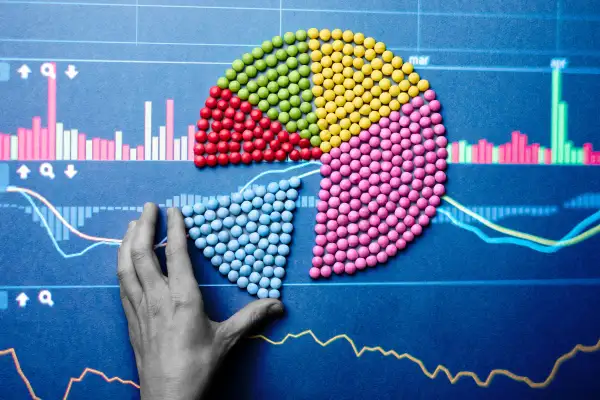The stock market is buzzing with financial jitters, and the main culprit? Tariff concerns! These worries are shaking up Big Tech ETFs and causing waves of uncertainty among investors. But why is this happening, and what does it mean for the future of the tech sector? Let's dive into the nitty-gritty details and explore the impact of tariff-related anxieties on Big Tech ETFs and stock market movements.
The Tariff Tangle
So, what's the big deal with tariffs? Tariffs are essentially taxes imposed by one country on the goods and services imported from another. When tariffs go up, the cost of imported goods increases, which can lead to higher prices for consumers and businesses. This is where the trouble begins for tech giants.
The tech industry is deeply interconnected across the globe, with supply chains spanning continents. When tariffs are imposed or increased, it disrupts this finely-tuned network. Components become pricier, manufacturing costs surge, and ultimately, consumer prices might rise. This spells trouble for Big Tech companies like Amazon, Apple, and Microsoft, which rely heavily on international supply chains and markets.
The ETF Equation
Exchange-Traded Funds (ETFs) are popular investment vehicles that pool together stocks, bonds, or other assets. They're like a mutual fund but trade on stock exchanges like a single stock. Big Tech ETFs, as the name suggests, focus on technology companies, including industry giants such as Amazon and Google.
When tariff issues emerge, they can spook investors, leading to a sell-off of stocks in these ETFs. If investors believe that tariffs will negatively impact tech companies' profitability, they may choose to pull their investments, causing ETF values to drop. This ripple effect can be seen in the broader stock market, as ETFs are a significant part of many investors' portfolios.

Real-World Impact: Amazon's Deepening Losses
Amazon has been at the forefront of this tariff turmoil. According to MarketWatch, Big Tech ETFs have been particularly hard-hit by tariff concerns, with Amazon experiencing deepening losses. Investors are wary that increased tariffs could inflate costs for Amazon, which might have to pass these costs onto consumers or absorb them, affecting profit margins.
This isn't just a hypothetical scenario. In March 2025, the market saw a significant downturn in Big Tech ETFs as tariff fears loomed large. The pressure on these ETFs underscores the delicate balance investors must strike between short-term volatility and long-term growth potential in the tech sector.
Investor Decisions: A Balancing Act
Investors are now playing a high-stakes game of chess, weighing the potential impact of tariffs against the growth prospects of the tech industry. On one hand, the tech sector is a powerhouse of innovation and growth, constantly pushing the boundaries of what's possible. On the other hand, tariffs could stymie this growth by increasing costs and creating market uncertainty.
Some investors might choose to weather the storm, believing in the resilience and adaptability of tech giants. Others might pivot their portfolios towards less volatile sectors until the tariff dust settles. It's a classic case of risk versus reward, with no one-size-fits-all answer.
The Bigger Picture: Tech Sector Stability
The tariff tumult raises larger questions about the stability and growth trajectory of the tech sector. While Big Tech companies have historically thrived amid challenges, the tariff issue highlights vulnerabilities in their global operations. Supply chain disruptions, increased costs, and geopolitical tensions are all factors that could shape the future of tech.
Despite these challenges, the tech industry remains a cornerstone of the global economy. It's a sector characterized by rapid innovation, robust consumer demand, and a seemingly insatiable appetite for new technologies. Even as tariffs cast a shadow, the long-term outlook for tech remains promising, with potential breakthroughs in fields like AI, quantum computing, and green tech on the horizon.

Conclusion: Navigating the Tech Tariff Tightrope
As tariff concerns continue to roil the stock market, especially for Big Tech ETFs, investors face a challenging landscape. The impact of tariffs on the tech sector is multifaceted, influencing everything from supply chains to investor sentiment. Yet, amid the uncertainty, opportunities abound for those willing to navigate the complexities of global trade and investment.
In the end, the tech industry's ability to adapt and innovate may be its greatest asset. While tariffs present a formidable challenge, they also serve as a reminder of the need for resilience and strategic foresight in an ever-evolving global market. Investors, tech companies, and policymakers alike must stay agile, ready to pivot as the economic landscape shifts beneath their feet.
So, whether you're an investor eyeing the next big tech breakthrough or a company grappling with tariff-induced headaches, one thing is clear: in the world of Big Tech, the only constant is change.

With all eyes on the tech sector, it's a time of both challenge and opportunity. Who will rise to the occasion, and who will stumble? Only time will tell in this high-stakes game of tech and tariffs.